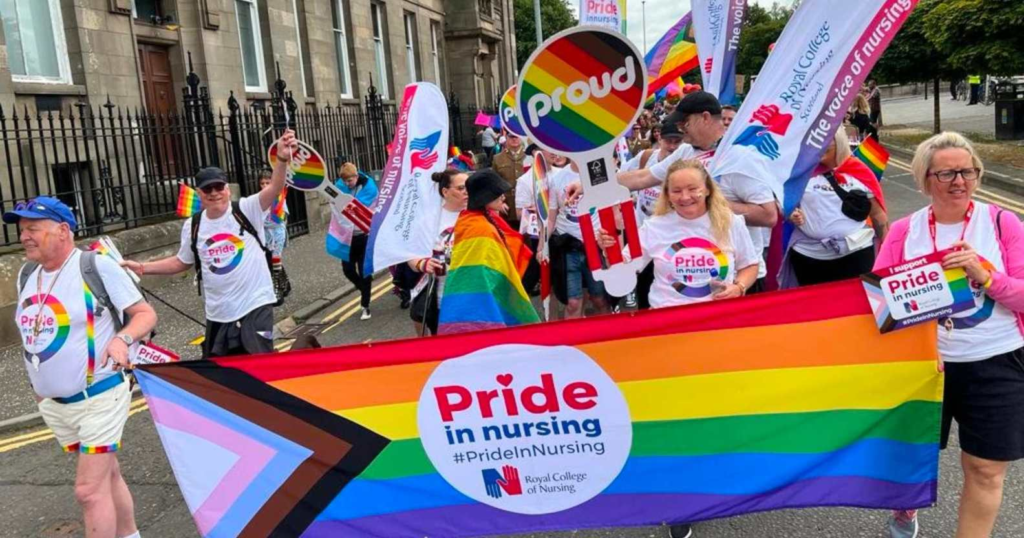In a resounding call for change, members of the Royal College of Nursing (RCN) have demanded action to ensure nursing staff are better equipped to support victims of LGBTQ+ hate crimes who come into their care. At the RCN Congress held in Brighton on May 16, a discussion on the pivotal role of nursing in assisting LGBTQ+ community members who fall victim to hate crimes was tabled, driven by distressing accounts of bigotry faced by both patients and staff.
Recognizing the urgent need for comprehensive support, the members voted overwhelmingly to elevate the discussion into a resolution. The resolution, passed with resounding support, serves as an official call to the RCN council to take immediate action in enabling nurses to provide adequate assistance to LGBTQ+ victims under their care. This move emphasizes the crucial role nurses play in various settings, from general practices and sexual health clinics to community outreach programs.
Jason Warriner, a dedicated nurse with a passion for LGBTQ+ activism within the RCN, highlighted the significance of this resolution. Often, when addressing hate crime victims, the focus tends to be on immediate medical care. However, Warriner emphasized that nurses work across a diverse range of environments, where they may detect signs of victimization and initiate important conversations. These instances could involve ongoing harassment or past hate crimes, necessitating the need for nurses to possess the knowledge and skills to connect individuals with relevant support services, such as the police, local LGBTQ+ organizations, or charities like Gallop.
The response from RCN members to the resolution has been overwhelmingly positive, with a strong show of support. However, it was noted that some individuals were not fully aware that LGBTQ+ hate crimes continue to impact the community. The alarming increase in statistics revealed during the discussion shocked many, challenging the perception that equality has been achieved solely through the establishment of marriage and civil partnerships.
While progress has been made over the years, there is still work to be done to combat homophobia and transphobia within the nursing profession and the RCN itself. Warriner, the first openly gay man elected as chair for the College Nursing Congress, recounted the substantial homophobia he faced in the mid-2000s. This serves as a reminder that progress should not be taken for granted, and efforts toward equality, diversity, and inclusion must persist.

Moving forward, training nurses to effectively support LGBTQ+ hate crime victims requires a multifaceted approach, including online learning resources, informative publications for care settings, and comprehensive equality, diversity, and inclusion training. Implementation of such training within the nursing body is the logical next step in ensuring the provision of optimal care and support.
Commenting on the resolution, Bruno Daniel, RCN’s diversity and equalities coordinator, expressed deep concern over the escalating numbers of LGBTQ+ hate crimes. He emphasized that the victims of such crimes could be anyone—loved ones, colleagues, friends, or neighbors—who may disclose their experiences when seeking care. Nursing staff play a vital role in providing compassionate treatment, facilitating access to specialist services, and supporting victims in their pursuit of justice. Equipping nursing teams with the necessary skills and knowledge to deliver the best possible care and support is of utmost importance.
Over the past decade, hate crimes reported to the police in England and Wales have seen a significant surge. Sexual orientation hate crimes rose by 501% from 2011/12 to 2021/22, while transgender hate crimes soared by a staggering 1,284% during the same period. These alarming figures underscore the pressing need for improved support systems and training within the nursing profession to address the rising wave of LGBTQ+ hate crimes.

